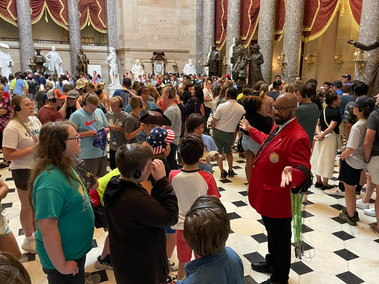
Two watchwords, awareness and empathy, can help us manage the huge transition involved in starting a new school year together. Most of us associate summer with relaxed routines and play, even if we are continuing work and school. However, for many of us fall represents a learning curve, an exciting time that also involves the challenge of change.
Both parents and teachers share the wonder of children maturing into a brand-new year, as well as the tremendous work and countless details to make it all happen smoothly. New classes, new routines, new people. We want to be aware that the transition to fall doesn’t occur in one day, but over time.
Realizing that change is both exciting and stressful can help us have compassion for others in our community and for ourselves. This is especially true for new students and families, and everyone can play a role in being welcoming.
Here are some suggestions to help everyone climb the mountain of new experiences in mutually satisfying ways.
Pay attention to energy—yours and theirs
Expect tiredness. Children may have meltdowns about little things, and parents may find their own patience tried. Fall transitions take enormous energy, and the first weeks of school may not be the time to add extra activities to a child’s schedule.
It helps to understand that clinginess, regression, and even agitation are often byproducts of new situations. It doesn’t mean anything is wrong. Change always involves struggle. Children need loving downtime with parents after school, and parents and teachers do better if they have time to recharge.
Talk about feelings with empathy rather than worry
Empathize with children’s mixed-up feelings about new beginnings without being alarmed by their anxiety or fears. Tell them stories about how you felt when you started a new school year. “I was excited to see my friends, but I was nervous about having a new teacher.”
Give children vocabulary to help them name and tame their emotions. “I hear that you were frustrated and angry that you didn’t get to play with your friend. What will you do to try to make that happen tomorrow?” We want to understand and validate children’s emotions without projecting worry that they won’t be able to handle the new situation.
Make a bridge from summer into the delights of fall
Talk about the good times of summer and make plans for ways to spend predictable, nourishing time together in fall, as schedules become more demanding.
Connect with understanding
Reach out to new people. Encourage other parents who seem to be struggling. Trust in teachers’ expertise and dedication to working with you to help each child to value themselves and to thrive.













































































